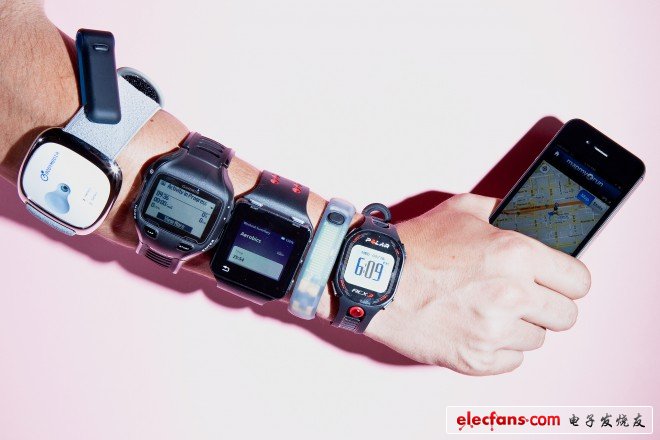The core tip of the electronic enthusiast network : The Wired Health Conference (Wired Health Conference) recently hosted by "Wired" magazine is being held in New York. The conference mainly discusses the development trend of medical technology combined with Internet technology and the impact of the latter on medical treatment. The topic discussed below is how big data is changing the way of healthcare. Even though big data is so close to us, someone will definitely ask, what does "big data" mean? For some people, big data means a large amount of information that a laptop cannot process; others define it as collecting data from different data sources and analyzing new patterns.
Big data: from abstract to concrete
Rick Smolan, a former photographer at National Geographic and Time Magazine, said that the above explanation does not make much sense to him as a photographer. Yahoo's current CEO Marissa Mayer compares big data to "the new nervous system being developed by the earth", and this nervous system is rapidly developing with the popularity of social media and various gadgets that can quantify users' own data. .

Smolan said: "The current challenge is how to make people realize the true meaning of big data." When it comes to Instagram, people know that it is related to taking pictures. But big data is a very abstract existence. Smolan hopes that people can think of some real things when talking about these abstract data points. To this end, he launched a mobile application called Human Face of Big Data to help people tap their own ability to collect, analyze, and even visualize large amounts of data.
Now, people can track the health of themselves and their relatives and friends through smartphones, cars and even carpets. The "Magic Carpet" project jointly developed by GE and Intel senses the speed and pressure of elderly people getting out of bed and walking through the built-in sensors in the carpet at home. Once these data are abnormal, the system will send an alarm message to relatives. Smolan said that this device does not have a camera installed, nor will it violate user privacy.
Joel Dudley, director of the Biomedical Information Department at Mount Sinai School of Medicine in New York, said: "These personal tracking devices have expanded the scope of healthcare covered by big data beyond clinics and hospitals. They give ordinary people the opportunity to actively explore technology and medical issues, Allow users to see their own data in a timely manner, and how these data change their health and life. "
Cloud + big data + analysis tools + new challenges
However, there is no matching analysis tool, and it is in vain to collect as much data as possible.

It is reported that the US government has realized this dilemma and has allocated more than 200 million US dollars to support big data analysis projects. Earlier this month, the National Science Foundation and the National Institutes of Health (NIH), which are jointly conducting eight big data research projects, received a $ 15 million research fund. NIH Dean Francis Collins said: "This fund will help us to develop appropriate methods to extract important relevant information from a large amount of complex data for analysis, so as to improve people's lives as soon as possible." At the same time, NIH will also Your own research data is uploaded to the cloud and shared with other scientists. As such tracking devices become more and more popular, privacy issues will inevitably follow. Joel Dudley believes that future discussions on privacy are very different from the present. Imagine that when you take a picture of a person and find that he is at risk of a certain disease through an application that can analyze his DNA status, the person being photographed should not be entangled in his privacy and violated himself or even ignore himself Health status.
18650 2S6P 7.4V Battery Pack,Rechargeable Aa Batteries,Portable Battery Charger,External Battery Pack
Shenzhen Powercom Electronics Co., Ltd. , https://www.expowercome.com